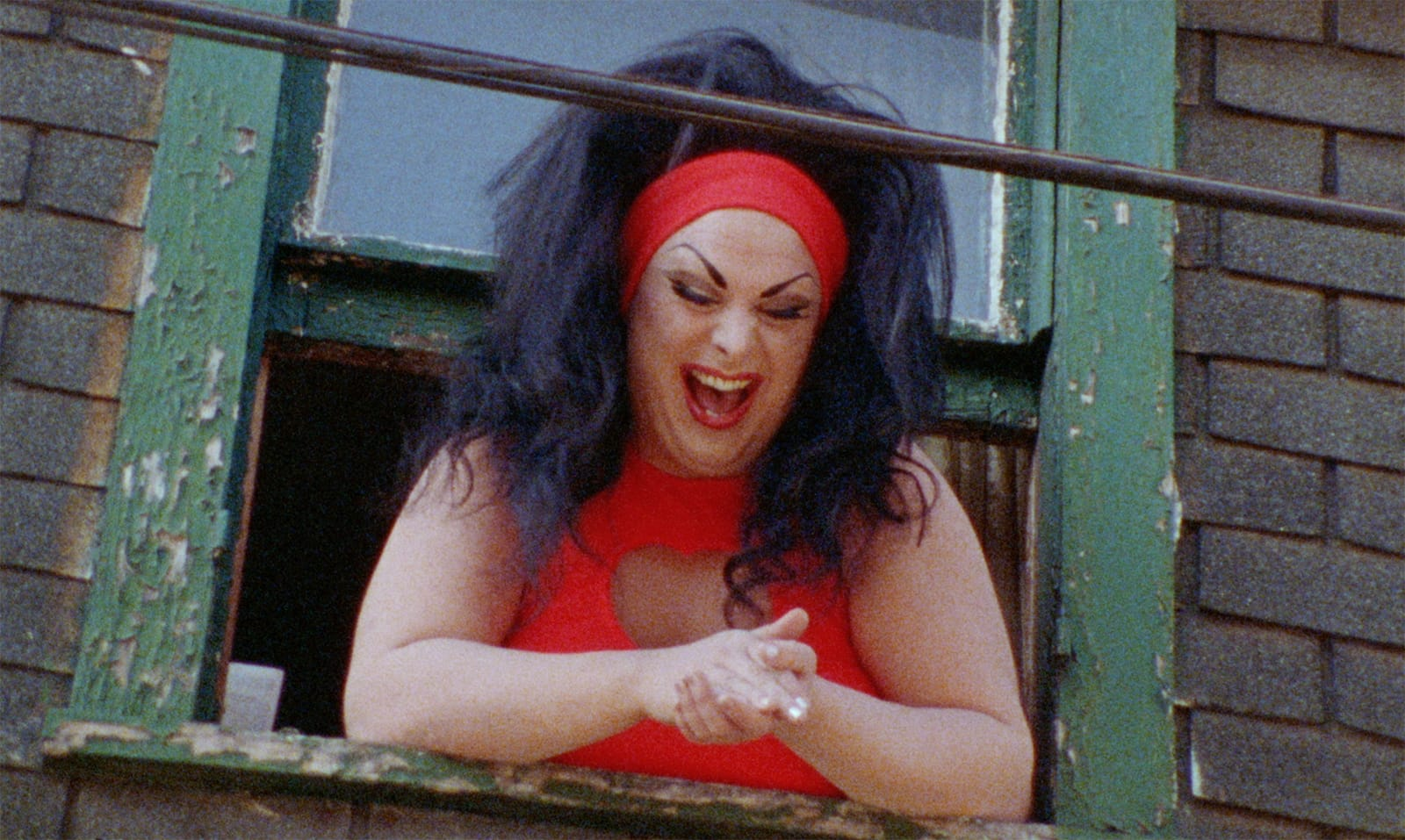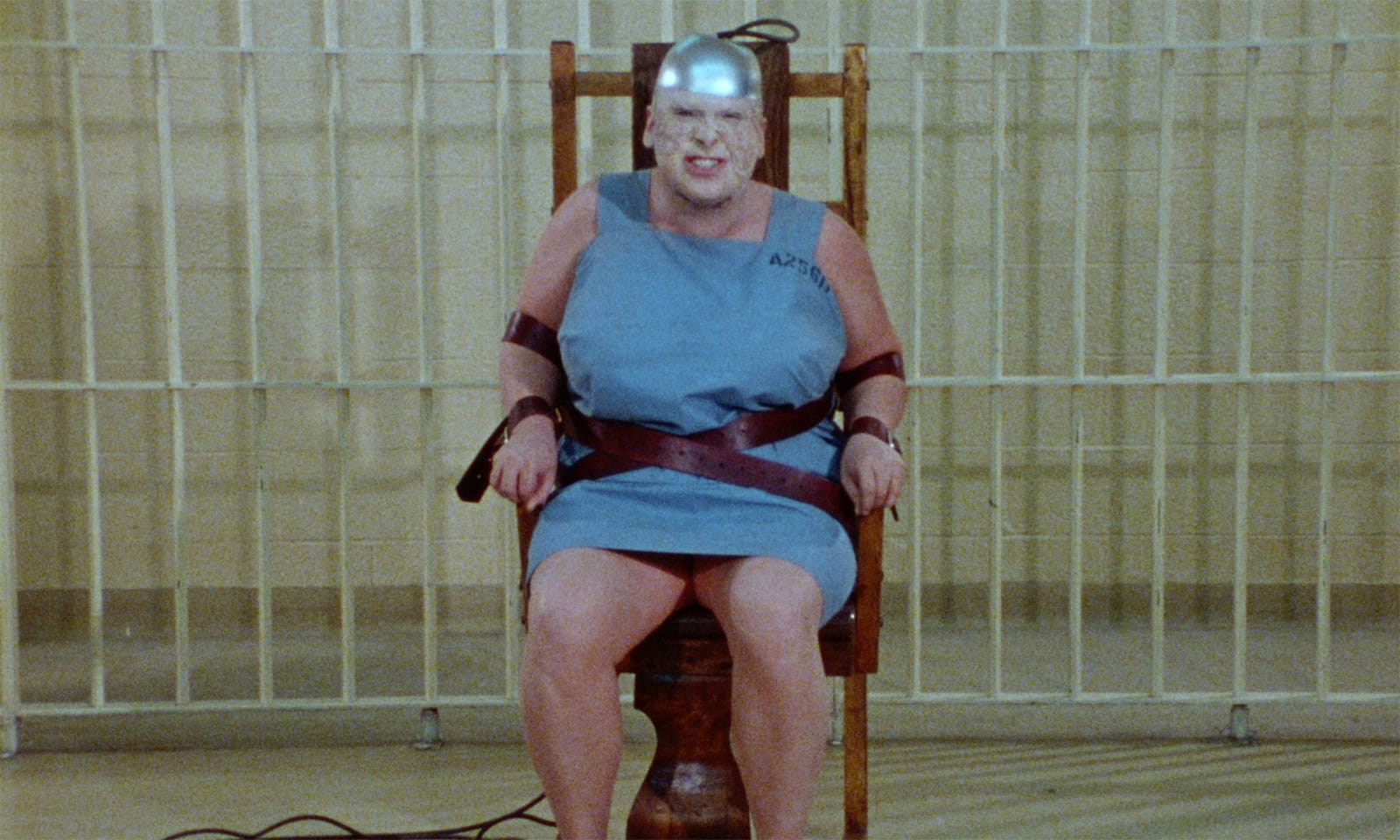Female Trouble: Spare Me Your Morals

Although director John Waters rose to notoriety thanks to his scandalously coprophagic midnight movie Pink Flamingos (1972), and scored his biggest mass-market hit with the Jiffy Popped hair-hopper comedy Hairspray (1988), there’s a good argument to be made that Female Trouble (1974) is his true magnum opus. Waters himself has expressed the opinion that this hilariously sordid pseudomelodrama is the finest of his early works, and the film’s star, drag icon Divine, likewise considered it his favorite. Mention Female Trouble to any of Waters’ more hard-core devotees and choice snatches of demented dialogue from the film will soon trip off their lips with the actors’ original intonations intact, as easily as a nun recites her one millionth Ave Maria (listen long enough and you may eventually hear the entire screenplay). Shot on a tiny $25,000 budget, Female Trouble was produced with many returning members of the cast and crew from Waters’ previous feature-length exploits: Mondo Trasho (1969), Multiple Maniacs (1970), and Pink Flamingos. And as with his other films, Waters played an outsize creative role, in this case serving as producer, director, screenwriter, cinematographer, and coeditor—and even penning the lyrics to the movie’s funked-out opening theme song.
Yet despite its Wellesian hands-on auteurism, Female Trouble succeeds spectacularly not only because it is a John Waters movie but also because it is undeniably a Divine movie, in the same way one might speak of a Bette Davis movie, a Marilyn Monroe movie, or a Jayne Mansfield movie. Written by Waters as a vehicle for the biggest player in his Dreamland Productions microstudio, Female Trouble is structured to show off the zaftig actor’s formidable range of comedic and even dramatic talent, as it charts protagonist Dawn Davenport’s arc from bratty suburban adolescent to electrocuted criminal. “Since the character turns from teenage delinquent to mugger, prostitute, unwed mother, child abuser, fashion model, nightclub entertainer, murderess, and jailbird, I felt at last Divine had a role she could sink her teeth into,” Waters wrote in his 1981 collection of essays and remembrances Shock Value. As Dawn, Divine is on-screen for the majority of the film, and even plays a second role, in macho drag, as Earl Peterson, a snarling dirtbag who rapes and impregnates the teenage Dawn after she runs away from home. (In later years, Divine had the perfect comeback when drunk hecklers at his live disco performances told him, “Go fuck yourself”: “I already did that!”)
As Dawn moves through her many life chapters, Waters and Divine tell her tale by cycling through a dizzying compendium of tawdry female screen representations, drawing inspiration from maligned genres like drive-in cheapies, Hollywood tearjerkers, and boob-tube soap operas. In the film’s opening scenes, Divine, Cookie Mueller, and Susan Walsh, playing a trio of unwaveringly bad-tempered Kennedy-era high schoolers, parrot the tough-talking demi-dames of a fifties juvenile-delinquent picture; later, after Dawn’s illegitimate child, Taffy, goes out of control, Divine channels the pincushioned miseries of a woman’s film like Mildred Pierce or Imitation of Life. “I’ve done everything a mother can do,” the grown-up Dawn breathlessly confides to her friends Chicklette (Walsh) and Concetta (Mueller), in the exasperated tones of a long-suffering matron, after shackling her screaming child to a bed in the attic with manacles. “I’ve locked her in her room. I’ve beat her with the car aerial. Nothing changes her!” The film’s conclusion finds an incarcerated Dawn awaiting her execution, and thereby morphs into a gritty women-in-prison flick, complete with sadistic lady guards and a cellblock lesbian romance.
“Although it may have been ahead of its time in promoting homosexuality on-screen, Female Trouble could never be accused of political correctness.”







